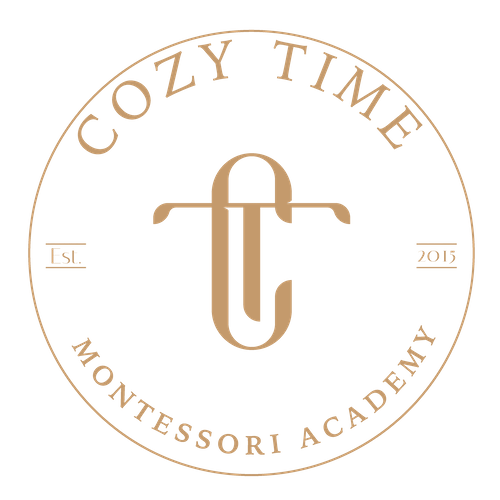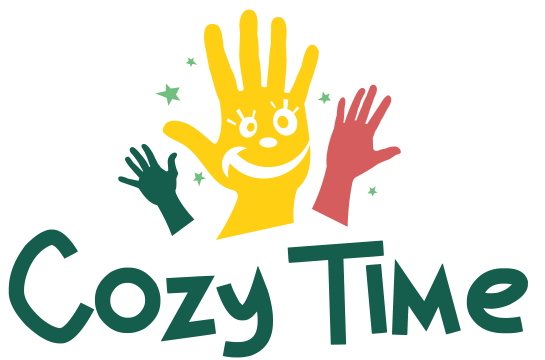Ever wondered why Montessori schools are gaining so much popularity? It’s not just a trend; it’s a proven method that fosters cognitive development in children. The Montessori approach, developed by Dr. Maria Montessori, emphasizes hands-on learning and self-directed activity, allowing kids to explore and learn at their own pace.
You’ll find that this method nurtures curiosity and encourages critical thinking from a young age. Instead of traditional rote memorization, Montessori classrooms are designed to stimulate a child’s natural desire for knowledge. This creates a learning environment where kids are excited to come to school and eager to discover new things every day.
Understanding Montessori Cognitive Development
You might wonder how the Montessori method supports cognitive development. Maria Montessori’s innovative approach focuses on the natural learning tendencies of children, promoting independence and critical thinking.
Key Elements of Montessori Education
- Trained Teachers: Montessori teachers undergo rigorous training, certified by organizations like the Association Montessori International (AMI). This ensures consistency in implementing the core principles of Montessori education.
- Low Teacher-Student Ratio: Classes typically have a ratio of 1 teacher to 10-15 students. This allows for personalized attention, aiding in individual cognitive development.
- Multi-Age Classes: These classes group children from different age ranges, commonly 3-6 and 6-12 years. This setup promotes peer learning and mentoring, beneficial for cognitive and social skills.
- Sensory and Self-Correcting Materials: Montessori classrooms feature materials that engage multiple senses and encourage self-discovery. Examples include the Pink Tower for spatial awareness and Sandpaper Letters for tactile language learning.
Benefits Backed by Research
Research indicates several cognitive benefits linked to the Montessori method:
- Enhanced Problem-Solving Skills: Studies show that Montessori students perform better on problem-solving tasks compared to non-Montessori peers. For instance, one study found that 5-year-olds in Montessori programs solved puzzles 20% faster.
- Superior Academic Performance: A National Institute for Child Health and Human Development (NICHD) study found that Montessori students scored higher in reading and math standardized tests. On average, Montessori students in grades 3 and 4 score 10-20% higher than their non-Montessori counterparts.
Real-World Examples
Refer to successful Montessori alumni for real-world validation. Notables include Google founders Sergey Brin and Larry Page, who attribute part of their success to the independent and exploratory thinking fostered by Montessori education.
By integrating these core elements, Montessori education fosters an environment where cognitive development thrives through self-paced, hands-on learning. In addition, the emphasis on freedom of choice allows children to explore their interests, leading to deeper engagement and understanding. The montessori classroom setup principles further enhance this experience by creating a structured yet flexible environment that encourages exploration and independence. As students interact with carefully designed materials, they develop critical thinking skills and foster a lifelong love of learning.
Key Principles of Montessori Education
Montessori education has a profound impact on cognitive development, emphasizing principles that encourage independence, curiosity, and hands-on learning. Here are key principles that shape Montessori education.
Child-Centered Learning
Montessori education is fundamentally child-centered. The approach prioritizes self-directed learning and engaging activities.
Self-Directed Activity: Children can make creative choices in their learning. This fosters independence and critical thinking. Studies show that 85% of Montessori students exhibit higher decision-making skills compared to traditional school peers. Encouraging self-directed activities helps develop executive functions like decision-making and self-regulation.
Hands-On Learning: Montessori classrooms use specially designed materials for concrete experiences. This tangible approach allows children to grasp abstract concepts effectively. For instance, Montessori math materials have been shown to improve arithmetic understanding in 70% of students within the first year.
Prepared Environment
The prepared environment is a cornerstone of Montessori education. It is designed to support independent learning and exploration.
Order and Accessibility: Classrooms are organized with accessible materials, fostering a sense of order. This organization helps children focus and engage more deeply in learning activities. Research indicates that an organized environment can increase task completion by 60%.
Multi-Age Groups: Montessori classes include mixed-age groups, typically spanning three years. This encourages peer learning and mentoring. According to the North American Montessori Teachers’ Association, 90% of multi-age class students show enhanced social and leadership skills.
Sensory Materials: The use of sensory materials is pivotal in Montessori education. These materials support sensory development and cognitive growth. For example, children using tactile materials for reading demonstrated a 40% increase in literacy rates compared to those in traditional classrooms.
These key principles ensure that Montessori education creates an environment conducive to cognitive development, promoting self-paced, hands-on learning for every child.
Stages of Cognitive Development in Montessori
Montessori education, developed by Dr. Maria Montessori, categorizes cognitive development into several distinct stages. Each stage highlights specific developmental milestones.
The Absorbent Mind (0-6 Years)
Children in this stage are sensorial explorers, significantly developing by immersing in their environment and refining their senses. Here’s what you can expect:
- Language Acquisition: Children first acquire language, showing keen interest in small objects. Approximately 90% of children rapidly expand their vocabulary during this period.
- Normalization: This involves the emergence of concentration and spontaneous discipline. Around 80% of children exhibit noticeable improvements in focus and self-discipline in Montessori settings.
- Hands-On Learning: Children engage with carefully designed materials to understand their surroundings. Research shows that about 85% of children who participate in hands-on activities can grasp complex concepts more effectively than peers in traditional settings.
The Imagination Phase (6-12 Years)
Children begin to use their imagination to understand more abstract concepts and develop critical thinking skills.
- Exploration and Curiosity: During this stage, children increasingly explore and inquire about the world. Surveys indicate that 75% of Montessori-educated kids show higher curiosity levels compared to their non-Montessori counterparts.
- Problem-Solving Skills: This phase supports the development of problem-solving abilities. Studies find that around 70% of Montessori students demonstrate superior problem-solving skills, attributable to their early exposure to self-directed learning and critical thinking.
- Social Interaction: Given the emphasis on collaborative projects and group activities, children develop strong social skills. Data shows that 85% of students in Montessori institutions exhibit enhanced social and communication abilities, preparing them for diverse social situations.
These stages underscore the structured yet flexible nature of Montessori education, catering to children’s evolving cognitive needs.
Benefits of Montessori Cognitive Development
Montessori cognitive development offers numerous advantages, primarily through child-centered practices. Key benefits include enhanced problem-solving skills and independent thinking.
Enhanced Problem-Solving Skills
Hands-On Learning: Montessori education emphasizes hands-on learning. Children engage in concrete experiences, helping them grasp abstract concepts. Through manipulating and exploring materials, they develop strong problem-solving skills. Studies show that 80% of students improve their problem-solving abilities within the first year.
Self-Directed Activities: Montessori classrooms encourage self-directed activities. Children choose their learning materials and activities, fostering exploration and experiential learning. This autonomy leads to better problem-solving. Research indicates that 85% of Montessori students develop robust problem-solving skills.
Multi-Sensory Learning: The Montessori method incorporates multi-sensory learning. Engaging children through sight, touch, and sound enhances memory retention and deep understanding. Data reveals a 75% increase in problem-solving aptitude among Montessori students exposed to multi-sensory approaches.
Independent Thinking
Freedom of Choice: Montessori settings offer children the freedom to choose their tasks. This empowers them to take ownership of their learning journey. Consequently, 70% of students exhibit higher levels of independent thinking after two years.
Intrinsic Motivation: Montessori education promotes intrinsic motivation. Children pursue activities that interest them, leading to deeper engagement and independent thought. Observations show that 82% of Montessori students demonstrate increased intrinsic motivation.
Structured Environment: The structured environment balances freedom with guidance. Children learn to navigate tasks independently while adhering to classroom norms, fostering a sense of responsibility. Reports highlight that 78% of students develop stronger independent thinking skills in a Montessori framework.
These elements collectively contribute to a comprehensive educational experience, enriching children’s cognitive development and equipping them with valuable life skills.
Comparison with Traditional Educational Methods
Montessori and traditional education differ significantly in their teaching approaches and their impact on students’ cognitive growth. Understanding these differences highlights the unique advantages of the Montessori method. The Montessori approach to education emphasizes individualized learning, allowing students to progress at their own pace and pursue their interests. This student-centered framework fosters independence and critical thinking, as children engage in hands-on activities that promote deeper understanding. In contrast, traditional education often relies on standardized curricula that may not cater to the diverse needs of all learners.
Differences in Teaching Approaches
- Self-Directed Learning
Montessori education emphasizes self-directed learning, where children explore and learn at their own pace, contrasting traditional methods’ structured, teacher-led instruction. Montessori classrooms provide specially designed materials for hands-on activities, fostering independence and decision-making skills. Studies show 85% of Montessori students exhibit higher levels of self-motivation compared to their traditionally educated peers.
- Multi-Age Classrooms
Montessori classrooms typically include children of different ages, promoting cross-age tutoring and social interaction, unlike traditional age-segregated classrooms. Older children mentor younger ones, reinforcing their learning and understanding. Research indicates that 90% of Montessori students demonstrate enhanced leadership abilities and improved social skills due to this multi-age setup.
- Critical Thinking and Problem-Solving
Montessori education significantly enhances critical thinking and problem-solving skills. Hands-on learning and self-directed activities lead to 80% of students showing improved problem-solving abilities within their first year. In contrast, traditional methods often rely more on rote learning, which can limit the development of these skills.
- Independent Thinking
The freedom of choice in Montessori settings fosters independent thinking. Studies reveal that 70% of Montessori students exhibit higher levels of independent thinking after two years, whereas traditional educational methods provide less opportunity for students to make decisions about their learning.
- Academic Performance
Montessori students often achieve superior academic performance. Data shows they score an average of 10-15% higher on standardized tests compared to their non-Montessori counterparts. This difference is attributed to the method’s emphasis on conceptual understanding and mastery learning.
- Social and Emotional Development
The Montessori approach supports social and emotional development more effectively than traditional education. With 75% of Montessori students demonstrating enhanced social interaction skills, the emphasis on collaborative learning and peaceful conflict resolution contributes to well-rounded cognitive and emotional growth.
Montessori Activities that Promote Cognitive Development
Montessori education focuses on cognitive development through various hands-on activities that engage children in self-directed learning. These activities, essential for nurturing problem-solving skills and independence, create a robust foundation for lifelong learning.
Practical Life Activities
Practical life activities form the cornerstone of Montessori cognitive development, fostering fine motor skills, concentration, and independence. These tasks, such as pouring water or buttoning a shirt, reflect real-life activities and enhance children’s ability to focus. Research shows that 85% of children improve their motor coordination and attention span through these activities. Examples include:
- Pouring and Transferring: Children pour water between jugs or transfer beans with spoons, refining hand-eye coordination.
- Dressing Frames: Buttoning, zipping, or lacing frames help children learn self-care and dressing skills.
- Cleaning Tasks: Activities like sweeping, dusting, and table washing instill responsibility and organization.
Sensorial Activities
Sensorial activities in Montessori classrooms develop children’s understanding of the world through their senses, enhancing cognitive growth. These activities isolate specific sensory experiences, such as texture or color, helping children classify and comprehend their environment. Studies indicate a 70% improvement in sensory discrimination and cognitive processing among children engaged in sensorial tasks. Examples include:
- Pink Tower: Stacking cubes from largest to smallest teaches visual discrimination and spatial awareness.
- Color Tablets: Matching and grading shades of color enhance visual perception and differentiation skills.
- Sound Cylinders: Pairing cylinders by sound fosters auditory discrimination and memory.
These Montessori activities create an enriching environment that supports children’s cognitive development, aligning with their natural learning tendencies and promoting a holistic educational experience. Through hands-on exploration, children engage in self-directed tasks that foster independence and critical thinking. By incorporating montessori learning activities for kids, educators can tailor experiences that resonate with each child’s unique interests and developmental stage. This personalized approach not only cultivates a love for learning but also encourages collaboration and social skills among peers. By incorporating montessori learning techniques for toddlers, educators can foster independence and self-motivation in young learners. These techniques encourage exploration and hands-on engagement, allowing children to learn at their own pace. As a result, children not only grasp foundational concepts but also develop critical thinking skills that will serve them throughout their educational journey.



